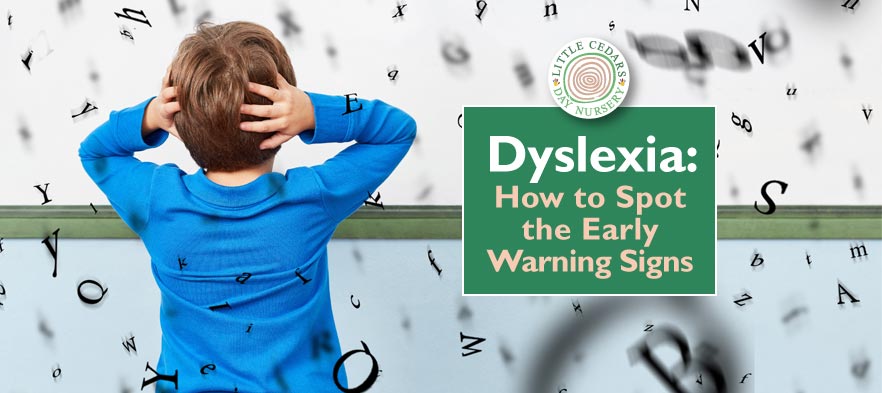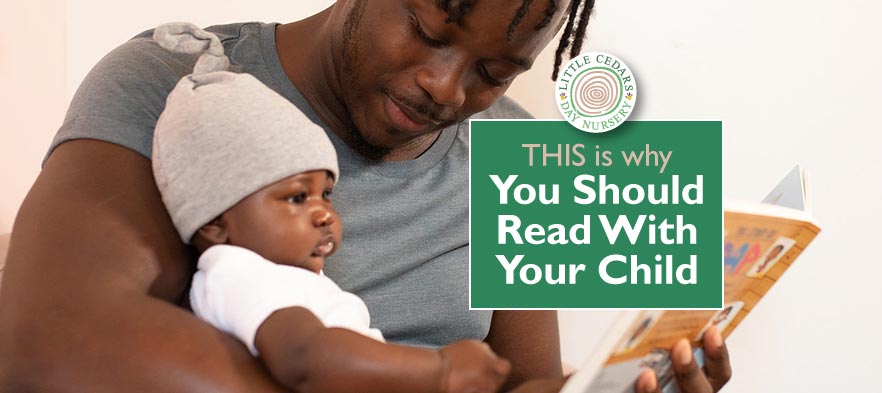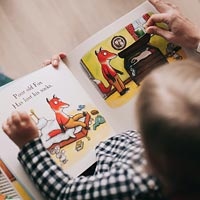
 Despite many dyslexic people being highly intelligent, dyslexia makes it difficult for them to recognise words and/or be able to break them down into their smaller components. It is recognised as a Specific Learning Difficulty (‘SpLD’) and can seriously affect their education if not recognised and addressed early.
Despite many dyslexic people being highly intelligent, dyslexia makes it difficult for them to recognise words and/or be able to break them down into their smaller components. It is recognised as a Specific Learning Difficulty (‘SpLD’) and can seriously affect their education if not recognised and addressed early.
A dictionary defines dyslexia as “a general term for disorders that involve difficulty in learning to read or interpret words, letters, and other symbols, but that do not affect general intelligence”. When it first came to the attention of doctors in the late 19th Century, it was more commonly referred to as “Word Blindness”, which pretty much sums up how dyslexia affects people afflicted by it.
The Adverse Effects of Dyslexia
 Such an affliction can have profound implications for a person. It will adversely affect their reading, writing and comprehension, thereby limiting their overall learning capability and hindering overall literacy. These are particularly critical skills during their early years as that’s at the start of their education, when the knock-on effects of such limiting factors will be at their most significant. It will slow down their progress in many topics and areas of education, also leading potentially to lower self-confidence and possibly even getting them mislabelled as ‘slow’ or ‘lazy’ by the unenlightened. Ultimately, it can severely limit their potential careers and life outcomes.
Such an affliction can have profound implications for a person. It will adversely affect their reading, writing and comprehension, thereby limiting their overall learning capability and hindering overall literacy. These are particularly critical skills during their early years as that’s at the start of their education, when the knock-on effects of such limiting factors will be at their most significant. It will slow down their progress in many topics and areas of education, also leading potentially to lower self-confidence and possibly even getting them mislabelled as ‘slow’ or ‘lazy’ by the unenlightened. Ultimately, it can severely limit their potential careers and life outcomes.
Those are incredibly unfair ramifications and that’s why we are taking a closer look at how parents, carers and education professionals can learn to spot the signs of dyslexia early, so that dyslexic children can be helped as soon as possible.
“The earlier a child with dyslexia is diagnosed, the more effective educational interventions are likely to be.” (NHS)
Early Warning Signs of Possible Dyslexia
In pre-school children, there are several things to watch out for. These include:
 Children finding it difficult to learn the alphabet;
Children finding it difficult to learn the alphabet;- Little interest in attempting to do so;
- Difficulty pronouncing multi-syllable words (or phrases) including jumbling the the order of them — ‘flutterby’ instead of ‘butterfly’ for example;
- Difficulty with rhyming words and even nursery rhymes;
- Slower speech development compared to others in their year group;
- Finding it difficult to express themselves verbally, including jumbling word order in sentences and having trouble recalling appropriate word(s) to use;
- Slower development of fine motor skills, for example maintaining a regular rhythm on a percussive instrument.
We should add, though, that having any or even all of these problems does not, in itself, definitely mean that the child has dyslexia — they are just possible signs of it. Many children without dyslexia may have some of these symptoms, so it’s important not to jump to incorrect conclusions. The symptoms of dyslexia also vary greatly from person to person, so diagnosis is not easy.
Dyslexia Signs in School-Age Children
It may become easier to diagnose dyslexia in children once they start school, as they will be reading and writing more by that time. Signs of possible dyslexia to add to the list above may then include:
 The child describing words and letters as visually jumbling, blurring or even moving around when they try to read them;
The child describing words and letters as visually jumbling, blurring or even moving around when they try to read them;- Giving poor written answers but good verbal ones;
- Difficulty learning common sequences of words like months of the year, days in the week and, as we mentioned before, letters of the alphabet;
- Difficulty following a sequence of instructions given at the same time (e.g. ‘put the fork on the plate, then take it to the kitchen’), but being OK if they are given separately;
- Inconsistent spelling and incorrect letter order;
- Mistaking numbers and letters for one another, for example using p instead of d or 9 instead of 6;
- Slow reading and writing speeds, poor quality of handwriting and making mistakes when reading out loud;
- A lower-than-average grasp of phonetics, phonology and ‘word attack’ skills, that might otherwise have helped a child to work out the possible meaning of multi-syllable/multi-part words through attention to the individual parts.
Learn more about assessment and diagnosis of dyslexia on the NHS site.
Is There a Cure for Dyslexia?
 There is no cure for dyslexia, but measures to mitigate its effects can be taken by education professionals, parents, carers and even those affected by it. It’s incredibly important, though, for both parents and education professionals to try to recognise it early, for example at nursery or pre-school, so that a suitable teaching programme can be introduced as early as possible.
There is no cure for dyslexia, but measures to mitigate its effects can be taken by education professionals, parents, carers and even those affected by it. It’s incredibly important, though, for both parents and education professionals to try to recognise it early, for example at nursery or pre-school, so that a suitable teaching programme can be introduced as early as possible.
Dyslexia & Special Needs at Little Cedars Nursery
If staff or parents of children at our nursery suspect that a child may be dyslexic — or have any other special needs — it’s important to discuss it together as early as possible in the child’s education. In this way, an appropriate learning and development programme can be agreed; one that is tailored to suit the individual child’s needs, in the best possible way. Doing so as early as possible, ideally starting in their pre-school years, will help to limit any adverse effects caused by the condition. When properly addressed, there is no reason why a child with dyslexia shouldn’t be able to absolutely thrive, despite the condition. It goes without saying that we are always happy to discuss any concerns parents may have about their children — indeed we encourage it so that we can work together to address such concerns.
 Little Cedars is an outstanding nursery in Streatham SW16, near Streatham Common, Streatham Hill, Streatham Park, Furzedown, Tooting and Balham. If you are looking for high quality nurseries or pre-schools in any of these areas, please get in touch and we’d be delighted to show you and your child/children around, so you can see the wonderful nursery facilities, happy children and exceptionally professional staff for yourself. Please get in touch, while a few places are still available, via one of the following:
Little Cedars is an outstanding nursery in Streatham SW16, near Streatham Common, Streatham Hill, Streatham Park, Furzedown, Tooting and Balham. If you are looking for high quality nurseries or pre-schools in any of these areas, please get in touch and we’d be delighted to show you and your child/children around, so you can see the wonderful nursery facilities, happy children and exceptionally professional staff for yourself. Please get in touch, while a few places are still available, via one of the following:


 In April last year, we published a compelling article about
In April last year, we published a compelling article about  Reading with children also makes the task less daunting, particularly for the youngest children. Reading together also makes it more interesting and more fun. When it’s more interesting and more fun, the child is going to enjoy it more and naturally want to read more often — eventually independently — and all of that is priceless as part of their education and general knowledge going forwards. Reading can also bring parent and child closer through the time spent together. It can be great fun for the adult too, particularly when the child gets older and adults are exposed to classic children’s books that perhaps they were not, themselves, exposed to when they were young.
Reading with children also makes the task less daunting, particularly for the youngest children. Reading together also makes it more interesting and more fun. When it’s more interesting and more fun, the child is going to enjoy it more and naturally want to read more often — eventually independently — and all of that is priceless as part of their education and general knowledge going forwards. Reading can also bring parent and child closer through the time spent together. It can be great fun for the adult too, particularly when the child gets older and adults are exposed to classic children’s books that perhaps they were not, themselves, exposed to when they were young. The Nuffield Foundation’s mission is to advance social wellbeing and educational opportunity. In a partnership with the University of Newcastle, the foundation funded a deep study
The Nuffield Foundation’s mission is to advance social wellbeing and educational opportunity. In a partnership with the University of Newcastle, the foundation funded a deep study It will come as no surprise, therefore, to learn that we put all of the above into practice at Little Cedars Nursery in Streatham. Getting closely involved in children’s reading, using a huge variety of reading material in an interactive way, gives our nursery children the very best start in life. Indeed, our childcare professionals prepare them thoroughly for school by the time they leave us. They take with them reading, writing, literacy, language, vocabulary and self-expression skills in the process — and all this accomplished at least in part through guided reading.
It will come as no surprise, therefore, to learn that we put all of the above into practice at Little Cedars Nursery in Streatham. Getting closely involved in children’s reading, using a huge variety of reading material in an interactive way, gives our nursery children the very best start in life. Indeed, our childcare professionals prepare them thoroughly for school by the time they leave us. They take with them reading, writing, literacy, language, vocabulary and self-expression skills in the process — and all this accomplished at least in part through guided reading.